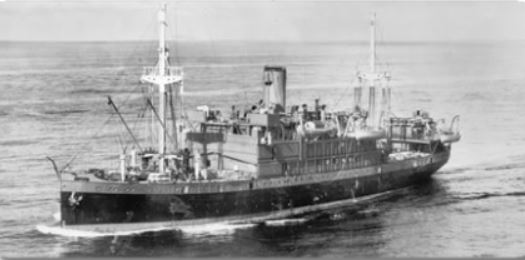Difference between revisions of "USAT Both"
From Our Contribution
| Line 29: | Line 29: | ||
==Remarks== | ==Remarks== | ||
| − | Coal fired. In early 1942 twenty-one small KPM vessels including ''SS Both'', loaded with refugees | + | Coal fired. In early 1942 twenty-one small KPM vessels including ''SS Both'', all loaded with refugees, limped into Australian ports before being obtained under charter for U.S. Army use and became known as the "KPM vessels" in the South West Pacific Area fleet, providing troop transport and cargo carriage between Australian and New Guinea ports. During 1942–43 the vast majority of all supplies reaching Allied troops in New Guinea were carried by the Dutch ships. |
Revision as of 22:56, 18 April 2022
 AWM 303017 | |
| History | |
|---|---|
| Name | uSAT Both |
| Owner | Kaninke Pakah Maats |
| Completed | 1931 |
| General characteristics | |
| Tonnage | 2,608 tons |
| Depth | 17.1 ft (5.21m) |
| Speed | 10 knots |
| Capacity | 750 troops |
Remarks
Coal fired. In early 1942 twenty-one small KPM vessels including SS Both, all loaded with refugees, limped into Australian ports before being obtained under charter for U.S. Army use and became known as the "KPM vessels" in the South West Pacific Area fleet, providing troop transport and cargo carriage between Australian and New Guinea ports. During 1942–43 the vast majority of all supplies reaching Allied troops in New Guinea were carried by the Dutch ships.
The KPM steamer Both helped transport the Australian troops of “Gull Force” to Ambon in December 1941, and later took part in the Operation Lilliput supply convoys to New Guinea in 1943.
The ship was fitted with a 20 pounder gun and 4 machine guns.